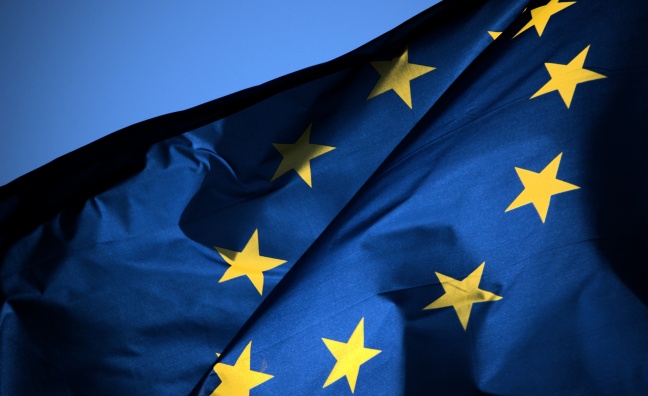You want to know how annoyed the music business is with YouTube over Article 13 right now? Well, annoyed enough to bring back the term ‘value gap’ in an open letter to the European Commission, Parliament and Council.
The three bodies are currently negotiating the exact wording of the final European Copyright Directive, including the controversial Article 13, which – in its original form – obliged owners of User Generated Content (UGC) sites to take responsibility for all content on their platforms.
While Article 13 was approved in the European Parliament, Google has since redoubled its campaign against the clause, with YouTube’s global head of music Lyor Cohen warning it would have “unintended consequences” for artists.
It looks like those efforts may have had an effect too, as in the letter a long list of creative industry players warn that the latest wording “would need fundamental changes to achieve the Directive’s aim to correct the value gap”. The value gap, of course, is the biz’s go-to phrase to highlight the disparity between the money services such as YouTube make from UGC, and the money they pass on to rights-holders. The phrase was a feature of much of the music biz’s early campaigning for the Copyright Directive, although it had seemed to be phased out as relationships with YouTube softened.
Now, however, the two sides are at odds again, with signatories to the letter including the IFPI, IMPALA, ESCA and Universal Music Group owner Vivendi. You can read the full text of the letter below:
“We are writing to you as a group of organisations representing European authors, composers, songwriters, featured artists, picture agencies, book publishers, academic publishers, audiovisual producers and broadcasters, independent and major music producers and publishers, and news and media companies.
"We have reviewed the European Commission text/non-papers on article 13 and we have serious concerns about the direction of travel.
"As we reach the very final stages of this process, and negotiators seek to finalise a compromise text, we urge you to remember that the overall aim of the original European Commission proposal was to correct the distortion of the digital market place caused by User Upload Content (UUC) services, which enable users to upload content onto their sites and then profit from the availability of creative content without returning fair revenues to rightsholders, who create and invest in such content.
"The fundamental elements of a solution to the Value Gap/Transfer of Value remain, as acknowledged by all three institutions in their adopted texts, to clarify that UUC services now defined as Online Content Sharing Service Providers (“OCSSP”) are liable for communication to the public and/or making available to the public when protected works are made available and that they are not eligible for the liability privilege in Article 14 of the E-Commerce Directive as far as copyright is concerned. We continue to believe that only a solution that stays within these principles meaningfully addresses the Value Gap/Transfer of Value. Moreover, licensing needs to be encouraged where the rightsholders are willing to do so but at the same time not be forced upon rightsholders.
"Therefore, proposals that deviate from the adopted positions of the three institutions should be dismissed.
"Unfortunately, for a number of reasons, the text now put forward by the European Commission would need fundamental changes to achieve the Directive’s aim to correct the Value Gap/ Transfer of Value.
"For example, solutions that seek to qualify or mitigate the liability of Online Content Sharing Service Providers should be considered with an abundance of caution to avoid the final proposal leaving rightsholders in a worse position than they are in now. Any “mitigation measures”, should they be offered to OCSSPs, must therefore be clearly formulated and conditional on OCSSPs taking robust action to ensure the unavailability of works or other subject matter on their services.
"To that end, while it may be appropriate for rightsholders or their representatives to give services access to reasonably necessary identifying information concerning unauthorised works or other subject matter, unclear or open-ended provisions potentially obliging rightsholders to play the main role in preventing unauthorised uses of their works fail to provide the necessary legal certainty and therefore fail to provide a meaningful solution to the Value Gap/ Transfer of Value.
"Furthermore, any proposal whereby services can effectively choose the level of diligence which will shield them against liability would perpetuate the Value Gap/ Transfer of Value and wholly undermine this crucial draft legislation.
"We trust that you will take this into consideration when discussing the draft Directive.
"Yours sincerely, the undersigned.
CANAL + - media group
CEPI - European Coordination of Independent Producers
CEPIC - Center of the Picture Industry
ECSA - European Composer and Songwriter Alliance
EPC - European Publishers Council
EUROCINEMA - representing the interests of film and television producers to the European Union
EUROCOPYA - European organisation of movie and television producers’ collecting societies in charge of private copy
FEP – Federation of European Publishers
GESAC – European Grouping of Societies of Authors and Composers
IAO - International Artist Organisation
IFPI – representing the music industry worldwide
IMPALA - European association of independent music companies
IMPF - Independent Music Publishers Forum
MEDIASET - media group
STM - leading global trade association for academic and professional publishers
Tf1 - media group
VIVENDI - media group
* To read Lyor Cohen’s side of the argument, click here. To read Sammy Andrews’ recent column on Article 13, click here.










